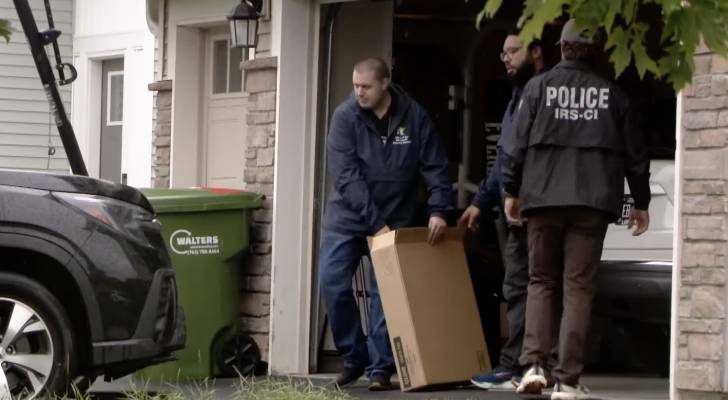A St. Paul, Minnesota resident’s guilty plea in a multi-million-dollar Medicaid fraud probe is shining a spotlight on health-care scams costing U.S. taxpayers billions.
Anwar Adow, 25, is convicted of wire fraud after admitting his company — Liberty Plus LLC — billed Medicaid $1.2 million for care it never provided through Minnesota’s Housing Stabilization Services (HSS) program.
“The level of fraud in these programs is staggering. Unfortunately, our system of ‘trust but verify’ no longer works,” acting U.S. Attorney Joseph Thompson said.
“These programs have been abused over and over, to the point where the fraud has overtaken the legitimate services.” (1)
HSS was designed to house vulnerable older adults and people with disabilities. (2) But as NBC affiliate KARE 11 reports, Adow “weaponized incompetence” to game the system, drawing vulnerable clients into the scam to collect their personal information and use it to bill Medicaid $1.2 million for housing the clients never received. (3)
Adow used the proceeds for luxury purchases and to pay employees who inflated their billable hours to generate more money for the scheme.
According to KARE 11, he is one of eight people charged in an HSS wire fraud investigation. His brother Asad Adow is accused of bilking $2.7 million in Medicaid funds through his own company.
In the meantime, the state announced that it would terminate the HSS program “due to large-scale fraud.” (4)
Just how much does health care fraud cost American taxpayers each year? And what is the true cost, beyond just the financial losses?
The U.S. Department of Justice (DOJ) estimates health-care fraud costs Americans $100 billion a year. (5)
But that’s “probably a conservative number … a drop in the bucket” relative to the real cost, according to Omar Pérez Aybar, a Florida-based special agent with the Department of Health and Human Services Office of Inspector General. (6)
Read more: Robert Kiyosaki warns of a ‘Greater Depression’ coming to the US — with millions of Americans going poor. But he says these 2 ‘easy-money’ assets will bring in ‘great wealth’. How to get in now
The National Health Care Anti-Fraud Association (NHCAA) pegs the actual cost of health-care fraud as somewhere between 3% and 10% of the national health outlay — or $300 billion a year. (7)
Story Continues
That, they add, includes anything from fraudulent billing for services never performed, or expensive but unnecessary treatments, to providing a false diagnosis to “justify tests, surgeries” and other unnecessary procedures, misrepresenting treatments “for purposes of obtaining insurance payments,” and more.
“It’s just so easy. It’s unbelievable,” one former Medicare scammer told CNBC. “It’s always been like that. And people keep on — they get caught, they get out, and they’ll do it all over again.”
Case in point? Earlier this year, the DOJ announced a $14.6-billion “health care fraud takedown” resulting in “criminal charges against 324 defendants, including 96 doctors, nurse practitioners, pharmacists, and other licensed medical professionals” across the U.S. It included everything from fraudulent medical claims to opioid trafficking to genetic testing fraud. (8)
One of those cases was a $10-billion urinary catheter scam in which the fraudsters stole one million Americans’ identities in 50 states and used their confidential medical information.
The Washington Post reported that the accused included people in Estonia, Kazakhstan and Russia, with one HHS official telling the outlet that he’d seen private Medicare information “bought and sold” on social media. (9)
All of which raises the bigger issue of how health-care fraud puts lives and livelihoods at risk by incentivizing fake diagnoses and unnecessary procedures while at the same time stealing Americans’ sensitive identity and medical information.
Fortunately, experts say that there are simple steps that Americans can take to protect themselves against health care fraud while helping to keep scammers in check.
The NHCAA advises that you always secure your health insurance ID in the same way you do your credit card info — and never share it with anyone who contacts you over the phone, online or even door-to-door. They also recommend keeping records of your medical visits and examining your benefits statements carefully so you can spot suspicious charges and flag potential scams.
The National Council on Aging says caregivers should watch for medical equipment (like boxes of knee braces) lying around the house that may have been shipped to the beneficiary without a doctor’s approval — and which could be a sign of a fraudulent expenditure or claim. (10)
And Medicare recommends comparing your medical receipts with the treatment you received, and “that Medicare will never call you to sell you anything or visit you at your home.” (11)
If you suspect you’ve been targeted for health-care fraud, contact your provider immediately using contact information you source yourself — not information provided by the possible scammer.
We rely only on vetted sources and credible third-party reporting. For details, see our editorial ethics and guidelines.
KARE 11 (1, 3); Thrive Social Services (2); Minnesota Department of Human Services (4); Department of Justice (5, 8); CNBC (6); NHCAA (7); The Washington Post (9); National Council on Aging (10); Medicare (11)
Join 200,000+ readers and get Moneywise’s best stories and exclusive interviews first — clear insights curated and delivered weekly. Subscribe now.
This article provides information only and should not be construed as advice. It is provided without warranty of any kind.

